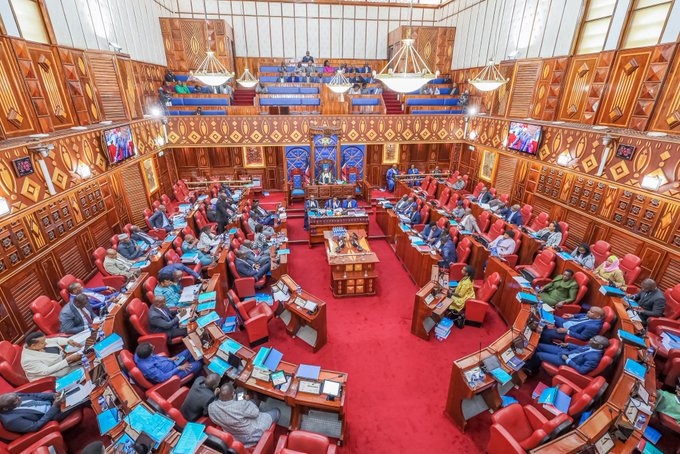The Omicron variant could turn out to be a good thing if it actually causes milder disease than other forms of the virus, leading microbiologist Prof Walter Jaoko says.
Early studies from South Africa suggest that Omicron may be producing less severe infections than previous variants such as Delta and it is more contagious.
Prof Jaoko said this would be good news.
“Delta has been the most dangerous variant so far. But there’s no evidence Omicron is more lethal and it could be even less lethal and this could be a good thing,” he told journalists on Tuesday at a webinar.
However, Prof Jaoko cautioned against placing too much stock in the potential good news of less severity, saying scientists around the world are still carrying out studies.
Last week, the World Health Organization said scientists need at least two weeks to properly understand this variant, which was officially reported by South Africa on November 24.
However, there is growing evidence it could soon lead to a new wave of infections around the world and displace the Delta variant to become the dominant variant.
“But we cannot make that conclusion now, so we are on the side of caution. The questions we have about Omicron are: Does it spread more, is it more severe, does it evade vaccines, does it evade diagnosis?” Prof Jaoko said.
He spoke at a webinar organised by African Science Media Centre.
Jaoko said mutations are not always bad because there are many infections that just die when a virus mutates and begins to spread less easily and spread less severe disease.
He said at the moment, there’s little evidence that the highly mutated Omicron could outsmart diagnosis or the current vaccines used globally.
“The only way to stop mutation is through all the disease containment measures we have spoken about and vaccination. The mutations in future could be in places with low vaccinations,” he said.
Prof Jaoko is the director of the Kenya Aids Vaccine Initiative Institute of Clinical Research, and teaches medical microbiology at the University of Nairobi.
Last week, veteran public health specialist Prof Richard Ayah warned Kenyans must still take caution, even though the new variant is said to be less severe than initially thought.
Prof Ayah said its greater transmissibility is of concern.
He explained that a variant can still be dangerous in an unvaccinated population even if it is less severe.
“Delta wasn’t different from Alpha in severity but had increased transmissibility. The issue was that more people were getting infected, which means if more vulnerable people get sick, then more people die,” he said.
Dr Ayah is a member of the taskforce on Covid-19 vaccine deployment, a don at the University of Nairobi and head of the African Research Universities Alliance Centre of Excellence.
The Omicron variant has spread rapidly and has been detected in more than 30 countries on six continents so far.
In South Africa, 85 per cent of all new infections are now Omicron, especially in young people. It is also becoming the dominant variant there.
-Edited by SKanyara












![[PHOTOS] Ruto dazzles in colourful maasai outfit](/_next/image?url=https%3A%2F%2Fcdn.radioafrica.digital%2Fimage%2F2025%2F11%2F8ccfbfe5-a43a-49b3-88f4-b99a41be4594.jpeg&w=3840&q=100)
